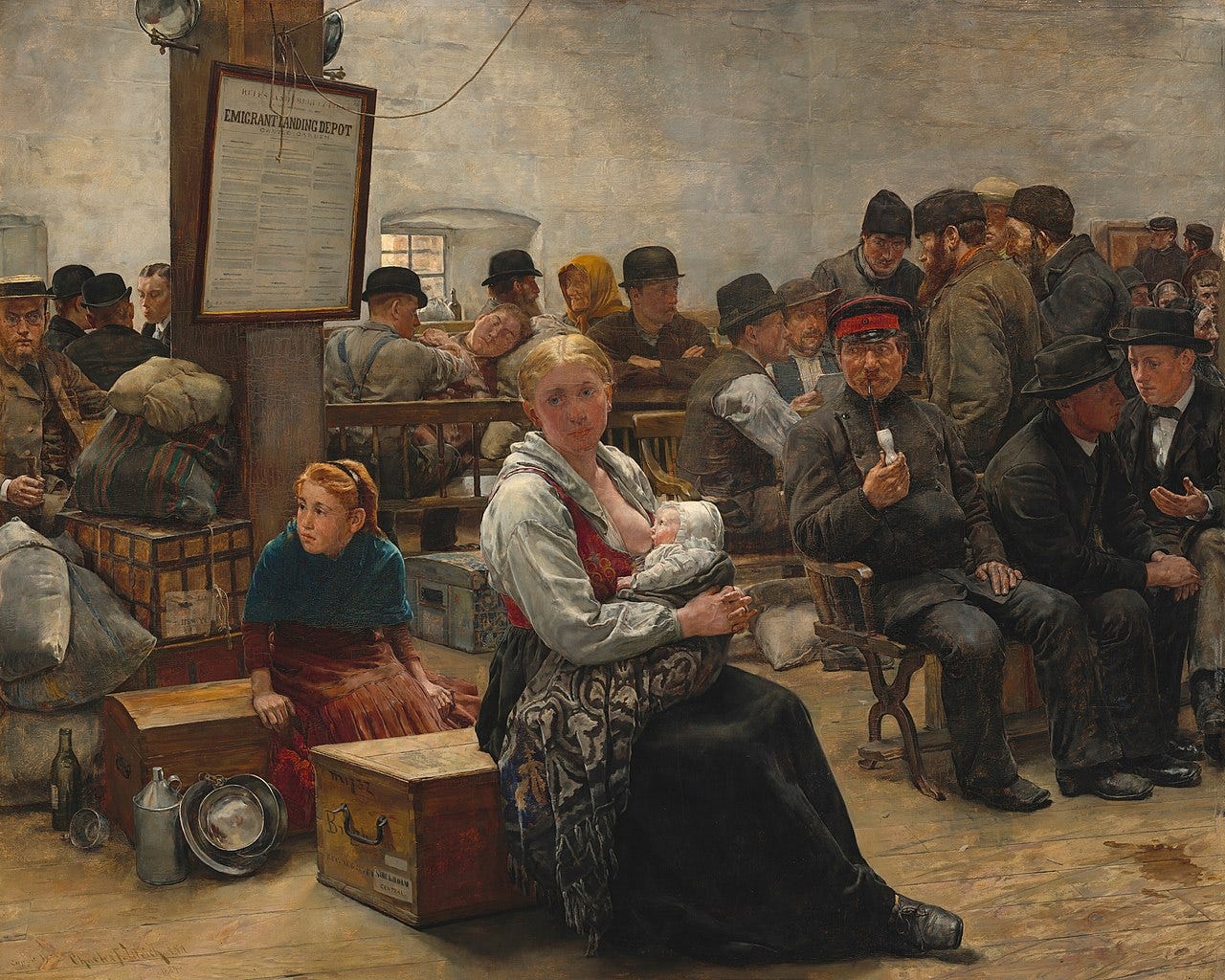The course of the next century of global history will likely be defined by developments in immigration policy and the movement of people. As gaps widen between countries with aging, shrinking populations and those with younger, rapidly growing ones, and climate change makes areas of the world uninhabitable. Unfortunately, reaction against immigration has been implicated in the increase in right wing reactionary politics in wealthy countries. One argument is that center left parties such as the Democratics in the United States should make concessions to nativist sentiment in order to gain a greater vote share, on the theory that currently the issue is a loser for the party.
Given the immense importance immigration is likely to hold in the future, this isn’t a viable strategy for the future of the country. Democrats need to defend a more open immigration policy, but they need to do so more effectively.
The two major approaches the party have taken so far have been ineffective, however - primarily addressing the mistreatment of undocumented immigrants and the necessity of immigrants for maintaining a robust economy.
That these approaches fail to persuade is no surprise. Focusing on the mistreatment of immigrants succeeds in bringing attention to a human rights crisis, runs into a practical issue: many of the worst issues are perpetuated under both Democrats and Republicans, and will on some scale be perpetuated so long as there is a system of restrictive borders. Detention and deportation can be reduced but not eliminated without a major overhaul of the immigration system, unlikely to be achieved under a single administration. This means Democrats will always be susceptible to charges of hypocrisy and, since diminutions in the scale of offenses rarely make the news, even real improvements will not gain political support. This is of course no reason to stop lobbying against human rights abuses associated with immigration enforcement - but it does mean that a different tack is necessary to make immigration less of an electoral liability.
When immigration is spoken of positively, it is generally as a necessary evil, not a good in its own sake. Instead, it is presented from a perspective similar to that of Chuck Schumer, who recently argued that amnesty for undocumented immigrants is necessitated by falling birthrates in the US. This argument, though economically accurate, is similarly unlikely to be convincing. The flaw in this presentation is that it depicts immigrants fundamentally as workers - before they are parents, children, students, neighbors, or in any other meaningful way members of society. And it is precisely as workers that immigrants are seen most negatively. The restrictions on freedom of movement may be inefficient, but they are an inefficiency that many Americans, themselves workers, actually prefer.
What is necessary is an overall change in cultural views on immigrants. Frederick Douglass’s speech on American as a “Composite Nation”, delivered following the Civil War and in the midst of rising anti-Chinese sentiment that would ultimately give rise to he presents two critical points. First, he presents it in the most basic terms: those of human rights.
“There are such things in the world as human rights…Among these, is the right of locomotion; the right of migration…. It is the right you assert by staying here, and your fathers asserted by coming here.”
In reminding his audience of their provenance, and their own exercise of free movement, Douglass strikes the familiar chord of the ‘nation of immigrants’ rhetoric frequently heard today. However, it is not frequently enough asserted that this right of migration is indeed universal, or that it is this right - not, fundamentally, legal permission, that secured them that privilege on an ethical level. The argument is, however, more convincing when presented as a defense of more expansive legal immigration, rather than simply ameliorating the human rights abuses to which undocumented immigrants a subjected. For this argument to be effective, however, its audience must fully buy into the equal humanity of non-Americans. This is not assured, especially in the particularly acerbic environment of many nativist circles. However, it is certainly easier to humanize people who migrate when their movement is fundamentally presented a human right, rather than simply a means to plug a budgetary gap.
Douglass makes another claim, rooted in the good of the nation rather than that of the immigrants themselves. With typical flourish he proclaims that
If we would reach a degree of civilization higher and grander than any yet attained, we should welcome to our ample continent all nations, kindreds , tongues and peoples; and as fast as they learn our language and comprehend the duties of citizenship, we should incorporate them into the American body politic.
There can be no doubt from a liberal perspective that in many ways the treatment of immigrants by the United States - and many other wealthy countries - represents a major abandonment of fundamental human rights. In Douglass’s own context treatment of Chinese immigrants was similarly abysmal. However, the focus of the speech is on the potential greatness of the country if these failings are remedied. The case for broader, freer immigration will be won when voters are convinced on this point. The argument cannot be that immigration will simply make up for falling birthrates, nor must it be allowed only the grounds that the methods needed to control it are too horrid to accept. Instead, for as many generations as tit takes, Liberals should be consistently arguing the point that immigration opens minds, strengthening both the communities who migrate and those that host them. It’s never an argument that can be won once and for all, but it’s one we should continuously make.






USA 1 billion by 2030 let's fucking go....
Matt, really enjoyed this piece. You are absolutely correct that, for many, immigration might be supported, but only in the context of it being a "necessary evil." This rationale, as you note, is subpar.
Did you have any policy ideas or recommendations that might overcome the recent moves against free movement of people? I had considered abolishing quotas and restrictions, largely replacing them with a market-based system that softens resistance to immigration. https://www.lianeon.org/p/toward-an-optimal-immigration-system